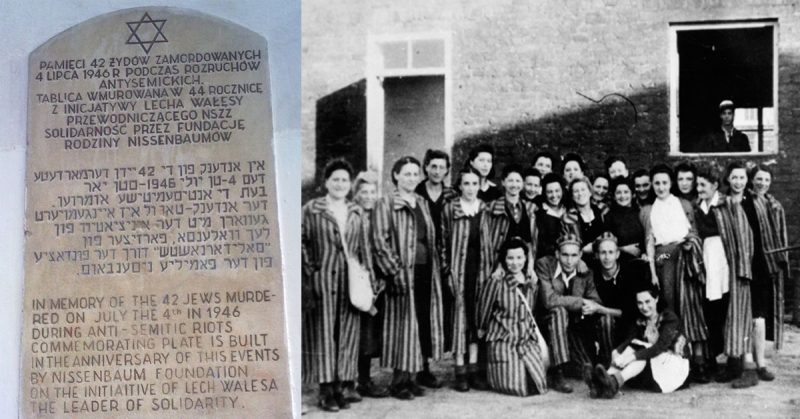A strong message from Poland’s Conservative President, Andrzej Duda, against xenophobia, prejudice and racism was made at a recent commemorative ceremony held to honour the victims of post-war massacres of Jewish Holocaust survivors. The Polish news agency PAP reported the President as saying, “In a free, sovereign and independent Poland there is no room for any form of prejudice, for racism, for xenophobia, for anti-Semitism.”
This is a far cry from the behaviour of communist police and workers from a steel mill, who on the 4th July 1946 stormed a house on Planty Street in the city of Kielce, which is south of Warsaw. The building housed some of the last 500 Jews that survived from the estimated 40,000 that lived in Kielce before World War II.
The mob rampaged through the house where the survivors from camps such as the Auschwitz-Birkenau were living and at least 42 were bludgeoned to death with many more being seriously injured in what is now considered the worst cast of anti-Semitism in Poland since peace was declared. This carnage was the final straw for many Polish Jews and they emigrated from Poland to take up lives away from the on-going hatred.
This strong statement from the ruling party is at odds with their election manifesto from last year in which they took a strong anti-migration stance. The leader of Poland’s Law and Justice Party, Jaroslaw Kaczynski, went so far as to accuse refugees of carrying “parasites and protozoa” to Europe. This virulent stance has been tempered in recent months with Kaczynski and Duda both castigating those who practice xenophobia or anti-Semitism.
